Globalization can enrich the world culturally. This should open up possibilities for cultural exchanges that promote friendship, equality and humanity. Because humans are endowed with the ability to create, understand and use language, we can use language to access cultural exchange and deal with globalization. By learning another language, one can discover many interesting characteristics about other cultures through which DARMASISWA brings you into this world.
DARMASISWA is a scholarship program offered to all foreign students from countries that have diplomatic relations with Indonesia to study Indonesian (Bahasa Indonesia), arts and culture at several universities throughout Indonesia. Participants can choose Sam Ratulangi University as one of the officially registered universities as the organizer of the program. This program was founded in 1974 as part of the ASEAN initiative, only accepting students from ASEAN. However, in 1976 this program was expanded again to other countries. Until now, the number of participating countries in this program is more than 111 countries and it is organized by the Ministry of Education, Culture, Research and Technology (Kemdikbud) of the Republic of Indonesia.
The main objective of the DARMASISWA program is to promote and increase interest in Indonesian language, art and culture among youth from other countries. It has also been designed to provide stronger cultural relations and understanding among participating countries.
At Sam Ratulangi University, DARMASISWA is considered one of our core programs for campus internationalization. Therefore, we have prepared a comprehensive year-long program specifically designed to ensure that students will have an unforgettable experience while here. At the end of the program, students will not only be able to speak Indonesian, but also understand culture and way of life through various cultural events and activities at Sam Ratulangi University and visiting many well-known tourist attractions and cultural centers in Indonesia, especially in North Sulawesi Province.
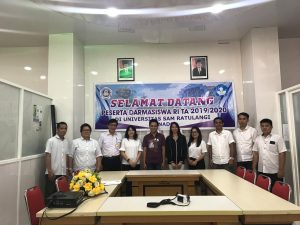
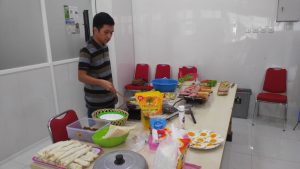
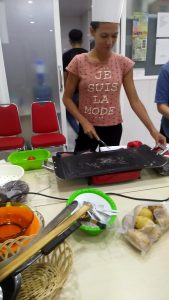
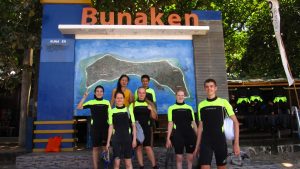
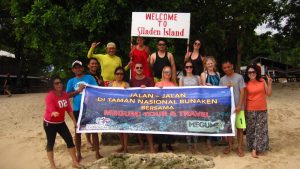
SCHEDULES To be annrunced PROCEDURES Prospective students are required to register and submit all documents in Darmasiswa RI official website apply.darmasiswa.kemdikbud.go.id. For students who are not in the student's home country is not allowed to be registered through the Indonesian Embassy/Consulate General in the participating countries (non-citizenship). QUALIFICATIONS OF STUDENTS Foreign nationals Completed secondary education or its equivalent Minimum age 18 years and Not older than 27 years of age Able to communicate in English (Proven by English Language Proficiency Certificate : TOEFL/TOEIC/IELTS or OTHER CERTIFICATE if applicable) In good health as proven by Medical Certificate Have basic knowledge of the field you're applying Have good interest to learning about language, art and culture Not registered as Darmasiswa’s Alumni Not currently studying in Indonesia Not currently working in Indonesia REQUIRED DOCUMENTS Curriculum vitae/resume Medical certificate Passport valid at least 24 months from the time of applying Recommendation Letter from Education Institution / Professional Institution on official letterhead and signature (in English) Last academic transcript and certificates (in English) Language certificate (if applicable) Other certificates that related to the field you're applying (if applicable) Photo passport colour Writing essay about purpose of study (in English or Bahasa Indonesia maximum 500 words) The video shows full of body and has a maximum duration of 2 minutes to tell about the motivation to join the program and what will be done after the program, as an ambassador of Indonesian culture. (in English or Indonesian) I. RIGHTS AND OBLIGATIONS Rights Obligations Darmasiswa participants are entitled to get an education at selected tertiary institutions which are in accordance with the learning guidelines standards set by the Ministry. Darmasiswa participants are entitled to get academic and non-academic services during the program. Darmasiswa participants receive protection for their safety and security while in the campus environment and / or participate in programs organized by tertiary institutions. Darmasiswa participants are allowed to take part in activities organized by universities or other institutions with the permission of the managing tertiary institution. Darmasiswa participants receive a scholarship component in the form of living expenses and accommodation assistance costs, with the amount as follows: a. The monthly living allowance is Rp2,000,000 (two million rupiah) b. Boarding assistance of Rp950,000 (nine hundred fifty thousand rupiah) for region 1 and Rp550,000 (five hundred fifty thousand rupiah) for region 2. c. Region 1 consists of: DKI Jakarta, Bogor, Banten, Cikarang, Depok, Batam, Bandung, Surabaya, Bali, Manado, Makassar, Ambon, Aceh, and Samarinda. d. Region 2 consists of: Medan, Padang, Palembang, Lampung, Purwokerto, Semarang, Yogyakarta, Surakarta and Malang. Participants get health insurance services through BNI Life providers and BNI Life cards that are distributed to participants at the time of arrival orientation. Darmasiswa Participants are given accommodation and transportation during the Program Orientation if the arrival of Participants is according to the arrival schedule determined by the Bureau. If the Darmasiswa participants attend outside the specified schedule, the costs will be borne by each participant. a. Darmasiswa participants will receive a settlement allowance of Rp1,000,000.00 (one million rupiah). b. Darmasiswa participants can be assisted by the Managing Higher Education and PKLN Bureau of the Ministry of Education and Culture in administering immigration documents. Darmasiswa participants are assisted by Managing Universities in finding housing. II. ACADEMIC REGULATIONS A. CLASSROOM RULES B. CLASSROOM ATTENDANCE C. ACADEMIC ACTIVITIES D. ISSUANCE OF CERTIFICATES E. SANCTIONS CLASSROOM RULES Students must dress courteously and with decency during their study in classroom and on campus (sleeveless tops, shorts and sandals are prohibited). Cell phones are to be turned off during study in the classroom. The allowable maximum lateness is 15 minutes. Provider must be informed about the absence (sickness, family matters, etc.). III. NON- ACADEMIC REGULATIONS A. LEGAL B. SOCIAL C. SANCTIONS Must comply with the prevailing laws and regulations of the Republic of Indonesia. Must comply with the existing regulations of the Host University. Must not work/earn a living while studying in Indonesia. Must not engage in political activities. Must not engage in criminal activities. Not spreading the ideology contrary to Pancasila and the 1945 Constitution. Must not get involved with drug trafficking (either as a drug abuser or trafficker). IV. ADMINISTRATIVE AND FINANCIAL REGULATIONS ADMINISTRATIVE AND FINANCIAL REGULATIONS The scholarship granted to the participants conforms with the maximum 12 month of study program (according to each universities regulation). Any participants who intend to terminate their term of study before the program in the university ends are only entitled to the allowance for the month, they are to leave for their origin country. DRI participants receive their monthly allowance in the first week of each month. Participants with an attendance of less than 75% in 1 month are penalized: A. 25% deduction of living cost benefits on first offense; B. 50% deduction from living cost benefits for the second offense; C. 75% deduction from living cost benefits for the third offense; D. 100% deduction from living cost benefits for the fourth and subsequent violations. DRI participants will receive their monthly allowance providing that they remain in Indonesia during their academic period of study and academic holidays. The scholarship will be paid in 2 (two) stages, at the beginning of arrival and the second semester of the following year. The second stage of payment is paid after an evaluation of the number of active students in the second semester, and financial evaluation. The second stage of payment takes into account the balance of funds in the first phase, and the shortfall in semester 2 needs. Universities are required to return funds if there are excess funds because there are participants who: resign, leave early, and do not meet the number of attendances per month.